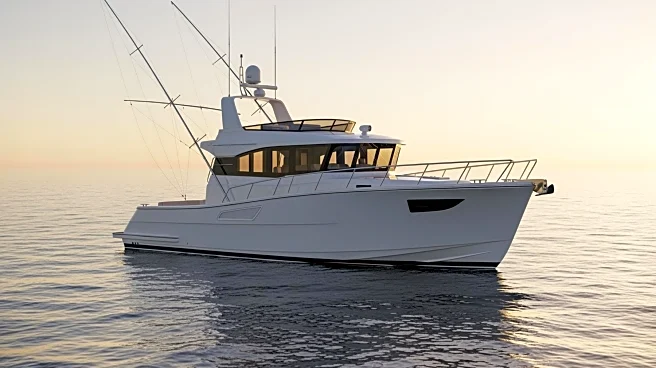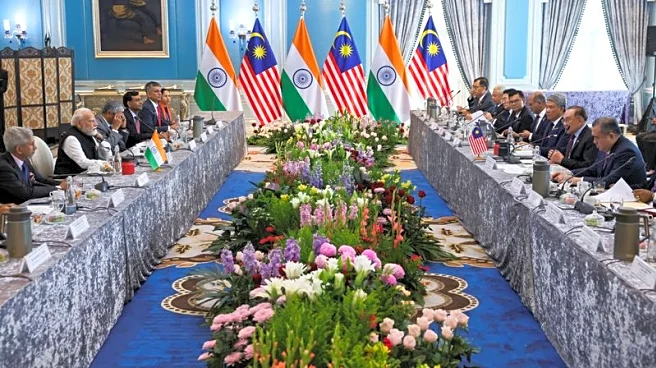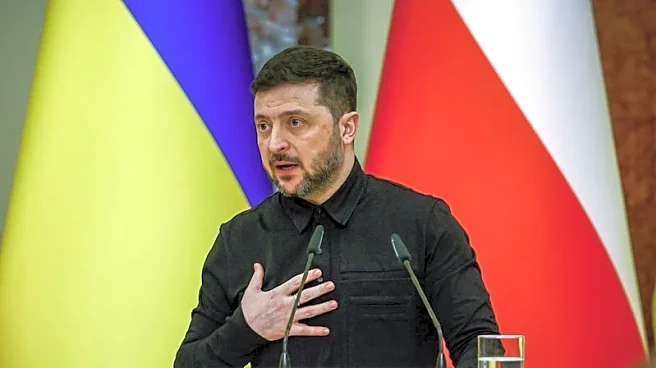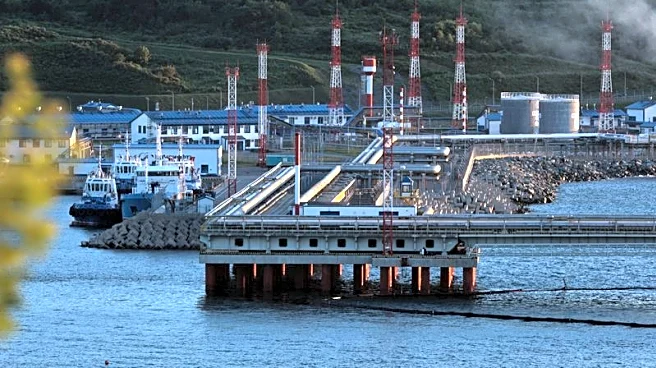What's Happening?
Icelandic technology company Hefring Marine has partnered with the Northern Ireland Fishermen’s Federation (NIFF) to pilot innovative solutions aimed at addressing challenges faced by the fishing industry. This collaboration, supported by the Marine Environment
& Fisheries Fund from Northern Ireland's Department of Agriculture, Environment and Rural Affairs, involves the trial of Hefring Marine’s IMAS technology on commercial fishing trawlers. The initiative seeks to provide vessel operators with real-time insights into fuel consumption and vessel performance, thereby optimizing operations, reducing costs, and enhancing safety. Rising fuel costs and global energy market pressures have significantly impacted the Northern Irish fishing industry, which traditionally relies on crude methods for fuel measurement. The new technology aims to offer precise data, enabling better management of resources and safety improvements through data-driven guidance on vessel handling in challenging sea conditions.
Why It's Important?
The partnership between Hefring Marine and the Northern Ireland Fishermen’s Federation is crucial for the fishing industry, particularly in the context of rising operational costs and environmental concerns. By providing real-time data on fuel usage and vessel performance, the initiative promises to enhance efficiency and safety, potentially leading to significant cost savings. This technological advancement could serve as a model for sustainable fishing practices, reducing the environmental footprint of fishing operations. The success of this pilot program could pave the way for broader adoption of similar technologies, not only in Northern Ireland but potentially in other regions facing similar challenges. This could lead to a more sustainable and economically viable fishing industry, benefiting both the environment and the livelihoods of those dependent on fishing.
What's Next?
If the pilot program proves successful, it could form the basis for a long-term strategy to modernize fishing operations across the Northern Irish fleet. This modernization could include the adoption of alternative technologies and sustainable practices, potentially influencing policy and operational standards in the fishing industry. The training provided to fishermen as part of this initiative will ensure that they are equipped to utilize the new technology effectively, fostering a culture of innovation and sustainability. The outcomes of this pilot could also attract interest from other regions and industries, looking to implement similar solutions to address their operational challenges.
















